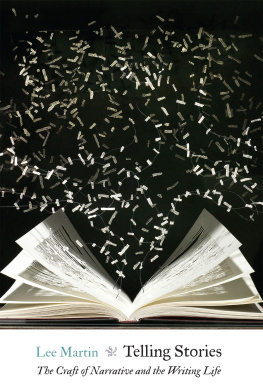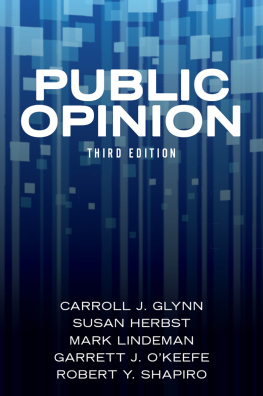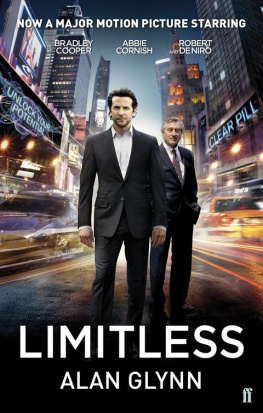Speaking Data and Telling Stories
Speaking Data and Telling Stories examines the interdependent relationship between method (Data Verbalization) and practice (performance). Data Verbalization is about communicating and disseminating research data using performance approaches and techniques such as; spoken word, jazz, hip-hop, and reggae theatrics.
Martin Glynn calls for the development of performance-driven research dissemination that seeks to bring urgent attention to minority, excluded, and marginalized perspectives within research dissemination as a whole. Employing the data verbalization method creates an exciting new proposition that can give progressive researchers a unique and distinct voice, alongside generating significant reach and impact beyond the academy, conference, and peer reviewed journal.
The book will be an invaluable resource for researchers, scholars, and related practitioners who want to strengthen their ability to communicate and disseminate research data using live performance / spoken word approaches and techniques. It will also provide guidance for students and researchers wanting to generate wider environmental, social, and cultural impact using research data creatively.
Martin Glynn PhD is an internationally renowned criminologist, critical race scholar, theatre director, and dramatist. His research focuses on race and crime, black masculinities, and performance driven research dissemination.
First published 2019
by Routledge
2 Park Square, Milton Park, Abingdon, Oxon OX14 4RN
and by Routledge
52 Vanderbilt Avenue, New York, NY 10017
Routledge is an imprint of the Taylor & Francis Group, an informa business
2019 Martin Glynn
The right of Martin Glynn to be identified as author of this work has been asserted by him in accordance with sections 77 and 78 of the Copyright, Designs and Patents Act 1988.
All rights reserved. No part of this book may be reprinted or reproduced or utilised in any form or by any electronic, mechanical, or other means, now known or hereafter invented, including photocopying and recording, or in any information storage or retrieval system, without permission in writing from the publishers.
Trademark notice: Product or corporate names may be trademarks or registered trademarks, and are used only for identification and explanation without intent to infringe.
British Library Cataloguing in Publication Data
A catalogue record for this book is available from the British Library
Library of Congress Cataloging-in-Publication Data
A catalog record has been requested for this book
ISBN: 978-1-138-48683-6 (hbk)
ISBN: 978-1-138-48684-3 (pbk)
ISBN: 978-1-351-04459-2 (ebk)
Speaking Data and Telling Stories: Data Verbalization for Researchers is dedicated in honour of my dear friend and colleague Dr Vinette Vinny Cross. Vinette was a prominent and established researcher and academic who was constantly searching for ways to present her data in open, accessible, and inclusive ways. She supported me unconditionally for over two decades and sadly passed away in October 2017. Her unwavering commitment, encouragement, and support for my vision to bring performance driven research data outside of the academy was the driving force behind data verbalization that has remained with me till this day. This book will therefore continue to establish and build the kind of legacy that Vinny envisioned before her untimely passing. More importantly, I have pledged to work alongside other researchers, academics, educators, and practitioners, who are keen to see Data Verbalization as part of a wider continuum toward personal, social, and cultural change and transformation using research data creatively which was always a core value of Vinnys work.
The journey of this book from its inception to the actual publication has been a very humbling experience. In the past Ive been critical of the work of some of my predecessors, not realising that all books are of their time and are not static in their claims. They are an extension of the researchers desire to create a legacy for their work. During my academic sojourn I have now acquired many new memories; collecting life stories, reading articles and books, discovering new and improved methods of disseminating research. Overall, this journey was a testing one, but one I needed to conclude. Im now feeling a huge sense of relief regarding my lingering self-doubt as to whether data verbalization will take its place in the continuum of research dissemination as a whole. I have pushed beyond the boundaries of that scared child hiding in the corner, to a child who wants to explore new things without living in fear of taking risks. Like an adrenalin rush new desires, thoughts, and feelings have pushed my curiosity to new heights. Mediocrity has no place in my life. Like a marathon runner I was poised to begin a long arduous journey where the route was mapped out, but my training had prepared me well. I am now more philosophical, gained new wisdom, and have acquired a mind not held captive by oppressive and dark forces. The need for validation has subsided, as accepting myself is more important than the emptiness of seeking the approval of others. The future may be uncertain and full of trepidation, but Im relieved I have given myself permission to pursue my freedom.
I want to thank:
- My wife Jennifer, who was there at the beginning, is still here, and continues to be the emotional support that keeps me going at difficult times.
- Hannah Shakespeare at Routledge for commissioning me to write this book and realise a long-held dream.
- Anne Peaker, Professors James Thompson, Johnny Saldana, and Norman Denzin, for providing me with the impetus to pursue my passion for integrating my passion for creative approaches to research dissemination.
- Richard Campbell (aka so natural) for his support and assistance in providing me with the music context for making data verbalization accessible to the wider public.
- The doubters and the well poisoners who never thought I would get anywhere.
- Those silent voices who have inspired me to create something that will be able to assist researchers, artists, and practitioners finding common purpose by exploring performed counter narratives.
As much contemporary research must now demonstrate significant social impacts
Research data dissemination must transcend the numbers N move beyond mere facts
There is also a need to creatively distribute N disseminate complex research data
That transcends the journal, the conference speech, N moves it entirely off the paper
Presented in ways that are accessible, understood, inclusive, impacting N engaging
Where the story of the data is taken from the initial idea, right thru to the staging
For critics N detractors this is an epistemological N ontological form of rehabilitation
Which is a dynamic oral rendition of research, known simply as data verbalization
Data Verbalization is about communication, dissemination, N robust interrogation
Of research data, that is a sensory, holistic, performative, a dramatic representation
Examining the interdependent relationship between practice N inquiry thats critical
Presenting data that is three dimensional, analytical, physical, N most of all lyrical
Explores difficult concepts, identifies emerging new patterns, paradigms, N trends
Where biased assumptions about reliability N validity are things you now have to suspend













